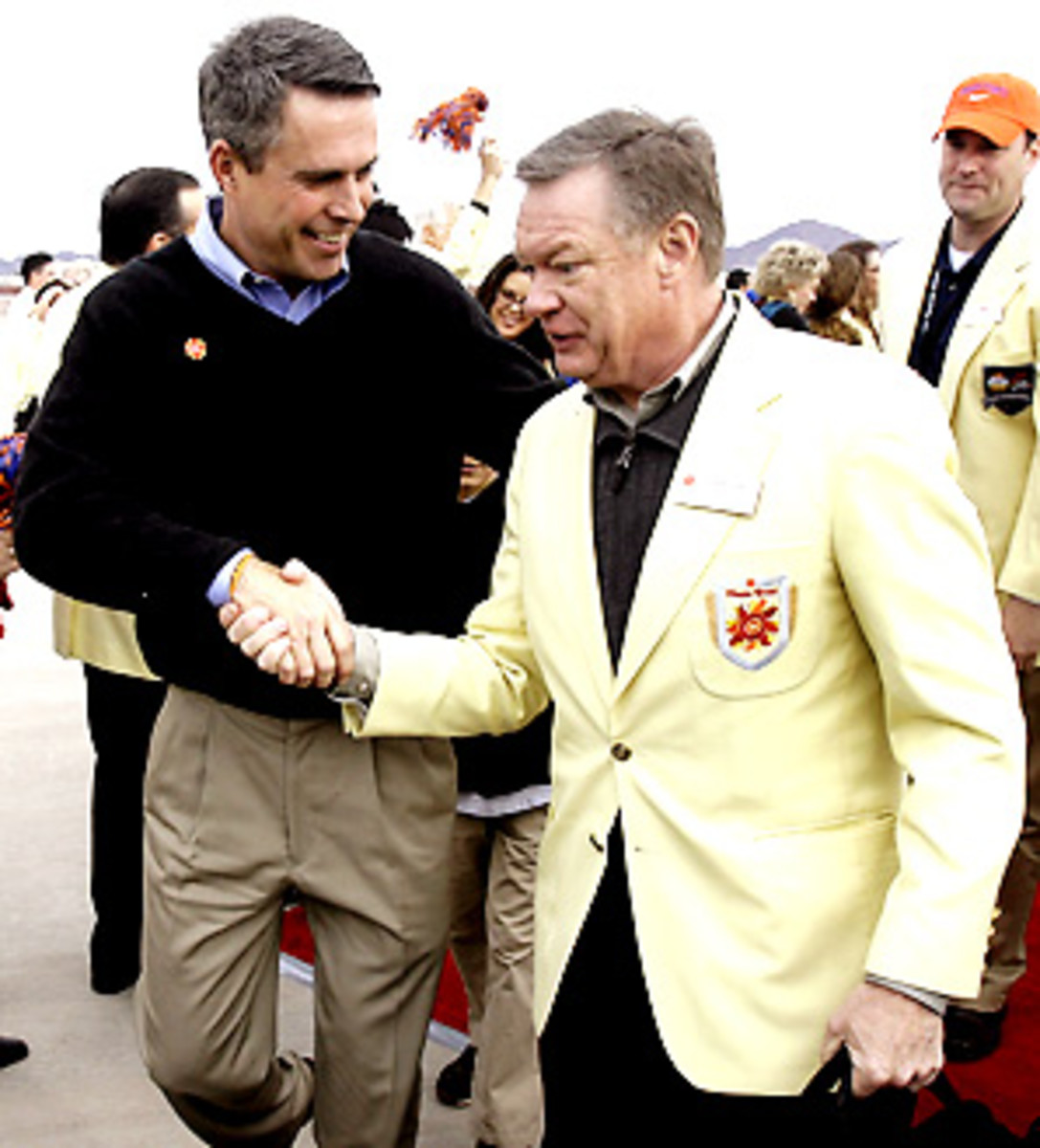My Sportsman: Playoff PAC


Sports Illustrated will announce its choice for Sportsman of the Year on Dec. 5. Here's one of the nominations for that honor by an SI writer.
In its basic unfairness, its willful exclusion of nearly half the teams in the country from playing for a national championship; in its cynical insistence that Every Game Counts, despite the fact that its existence ensures that, for many teams, when it comes to playing for a national title, No Game Counts, the Bowl Championship Series is a profoundly unsportsmanlike institution. In this humble scribe's opinion, college football succeeds in spite of it.
So it stands to reason that those who expose the hollow cant and hypocrisy of the BCS are advancing the cause of sportsmanship. It makes perfect sense, then, to bestow my Sportsmen of the Year award on Matt Sanderson and his band of big-brained, like-minded lawyers at the indispensible Playoff PAC.
Sanderson, now 30, is a Washington, D.C.-based attorney at Caplin & Drysdale who "inherited my Mom's knack for getting people to do things for free." In the fall of 2009, he and five friends cofounded Playoff PAC, "dedicated to establishing a competitive post-season championship for college football." Working on a bare bones budget -- they've raised roughly $15,000 in two years of existence -- and volunteering their time, this small group of gadflies has had an outsized effect on the national debate. Just ask John Junker.
Back in 2009, the Arizona Republic reported that Fiesta Bowl employees had been required to make contributions to political candidates, and were then reimbursed by the bowl, a violation of federal law. When the Fiesta Bowl's own quickie investigation -- surprise! -- uncovered no wrongdoing, Sanderson & Co. filed a complaint with Arizona's secretary of State's office. Acting on that complaint, the secretary of state referred the case to the office of Arizona's attorney general, which impaneled a grand jury. With the heat on, the Fiesta Bowl formed a "special committee" to launch a second investigation. This one, decidedly not a whitewash, resulted in the firing of Junker, and put on stark display the yawning disconnect between the bowl's stated mission of serving "the student-athlete," and its actual mission: cultivating lobbyists and politicians in order to keep its place at the BCS trough.
"We just will not be associated with this kind of behavior," clucked BCS Executive Bill Hancock, who, alas, already was: the previous fall, Playoff Pac had filed a 27-page legal complaint with the IRS. That document, based on the review of 2,300 tax records and public documents, methodically ticked off the ways in which officials at the Orange and Sugar bowls had routinely abused their status as tax-exempt charities. They just weren't quite as brazen about it as Junker. Boss Tweed wasn't as brazen about it as Junker.
When the BCS trumpeted its punishment of the wayward Fiesta Bowl -- a "$1 million sanction" in the form of "mandatory distribution to charities" -- Playoff Pac pointed out the Bowl's own Articles of Incorporation state that its proceeds "shall be used for educational and charitable purposes." As Sanderson put it, "The BCS might as well have let the Fiesta Bowl off the hook with a promise to pay its utility bill."
Last January, Playoff Pac produced red faces at the Orange Bowl when it detailed the four-day Royal Caribbean cruise -- the "Summer Splash" -- provided by Bowl officials to themselves and dozens of college athletic directors and their spouses. Separate complaints filed by PP have detailed hotel kickbacks allegedly accepted by the Fiesta Bowl, and unlawful political contributions made by the Sugar Bowl.
Between these revelations, widespread disgust generated by the L'Affaire Fiesta, the intense scrutiny of the Justice Department (which is considering anti-trust action against the BCS), and an increasingly widespread dissatisfaction with how college football crowns its champion, the Bowl Championship Series is approaching the end, arguably, of the worst year in its 14-year history. For this, Sanderson and his fellow anti-BCS warriors deserve a disproportionate amount of the credit. An annus horribilis for the BCS is a good year for college football.
Don't worry. The praise won't go to Sanderson's head. Anytime he finds himself feeling overconfident, he reflects on the old (since disabled) Youtube clip of Bear Bryant predicting confidently, in 1985, that a playoff in college football is imminent.
"I think about that," he says, "and get back to work."
